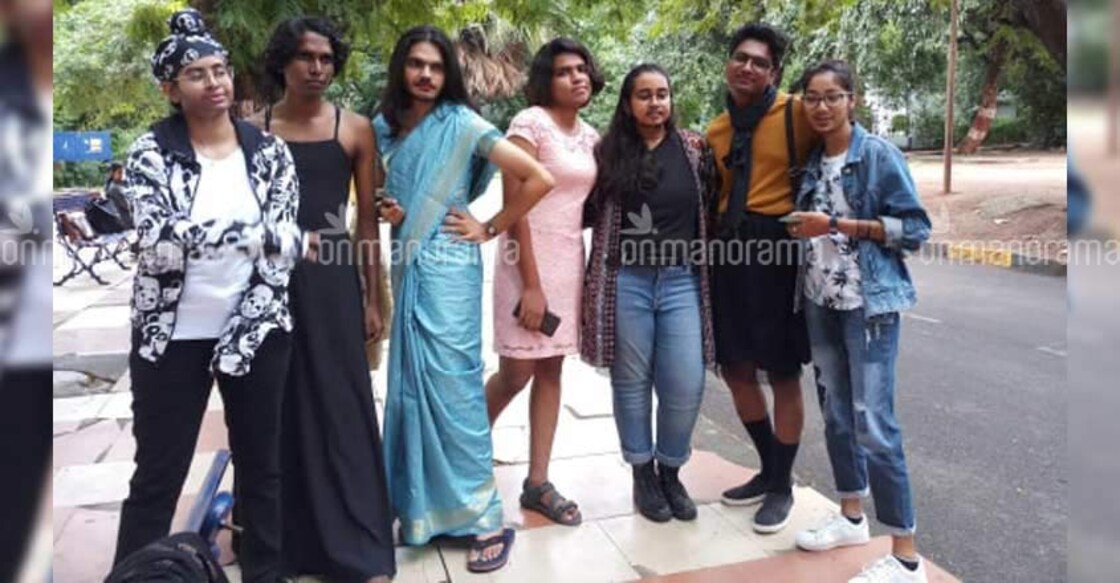Men in salwars, women in lungis! EFLU does it again to break mores

Mail This Article
Had you taken a stroll around the campus of the English and Foreign Languages University in Hyderabad on Monday, you would have come across young men with neatly draped sarees around their bodies and women flaunting informal checkered dhotis! Guys ditched their conventional denim-tee costume and adorned kurtis and leggings. They decked themselves up with heavy necklaces, earrings and bangles. On the other hand, young women carelessly wrapped themselves in dhotis wore over-sized shirts and tees. The students of the reputed institution once again swapped their attires as part of the annual 'cross-dressing' event.
According to the final-year MA students who organised the event as part of the welcome party they organized for the freshers, the society expects an individual to choose clothes that are appropriate and acceptable in the eyes of the majority. The cross-dressing event stands for breaking the codes that are assigned to every gender by the society. “Everyone should be given voice and choice in a progressive society. A space where you can expose your identity without being judged based on your gender and sartorial choices is our dream,” one of them said.
EFLU has a tradition of conducting an annual cross-dressing event as part of its freshers' week. The newcomers voluntarily participate in the cross-dressing event to break the stereotypical dress-codes. It was a fascinating and colourful sight to watch young men flaunting a variety of clothes ranging from sarees and churidars to leggings and crop tops. At the same time, women had limited options like shirts, dhotis and lungis. The male students took ample time and significant efforts to present themselves in their bid to deride the notions of aesthetics that our society uphold.

“A patriarchal society expects women to present herself as burdened with ornamentation and heavy clothing. Cross-dressing is an opportunity for men to set foot in a woman's shoe,” Athira, an MA student, said. However, the exaggerated attempts of men to imitate the mannerisms of women while wearing their attire spoil the very purpose of the event, she added.
Women, on the other hand, found it easier to dress-up like a man. As women have already normalised wearing jeans and shirts, the transformation was far easier for those female students who participated in the event.

Women have always tried to subvert the gender roles ascribed by the society by normalising them, a student of MA Cultural Studies remarked.
“The kind of gender representation that an event like cross-dressing focuses on is based on difference. Men and women are biologically different and the society prescribes them attires which make them look different. Cross-dressing is not always about rebelling against the norms, it’s also about finding a space where your curious questions and doubts about the other gender is addressed,” he said.
However, a section of students who stayed away from the event opined that cross-dressing reinforces gender stereotypes. They ask whether the society needs any dress codes at all!

